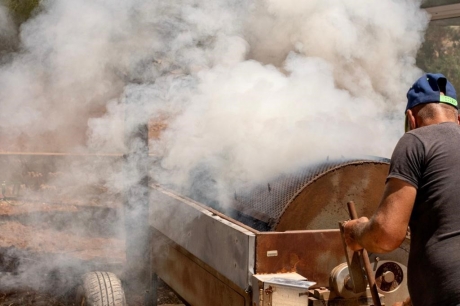Freekeh: The ancient dish firing up rural women’s futures in Lebanon
Green wheat is turning women at the heart of the Bekaa Valley into entrepreneurs
There is a special and nutritious cereal food born from the fire. Some call it “farik” or “frik”, but its true name is freekeh, which comes from the Arabic word farak: “to rub”.
Norma Kozah Rahmeh and her twin daughters, like other women growers in Lebanon’s Bekaa valley, harvest this durum wheat before it fully ripens. They pile it, sun-dry it and then carefully set it on fire so that only the straws and the chaffs burn.
The high moisture of the young grains allows them to survive the fire, and after vigorous rubbing, they are released as delicious green kernels with a smoky flavour: the freekeh.
This cereal, an ancient component of Levantine and North African cuisines and still very popular in many countries of the Mediterranean Basin, is the perfect ingredient for pilafs, stir-fries, risottos, soups or to simply mix with chicken, fish and other meats.
Once upon a time the wheat silos of the Roman Empire, the Bekaa Valley has recently seen freekeh booming in its fields again, thanks in part to a group of rural women who realized its nutritional, cultural and economic value.

